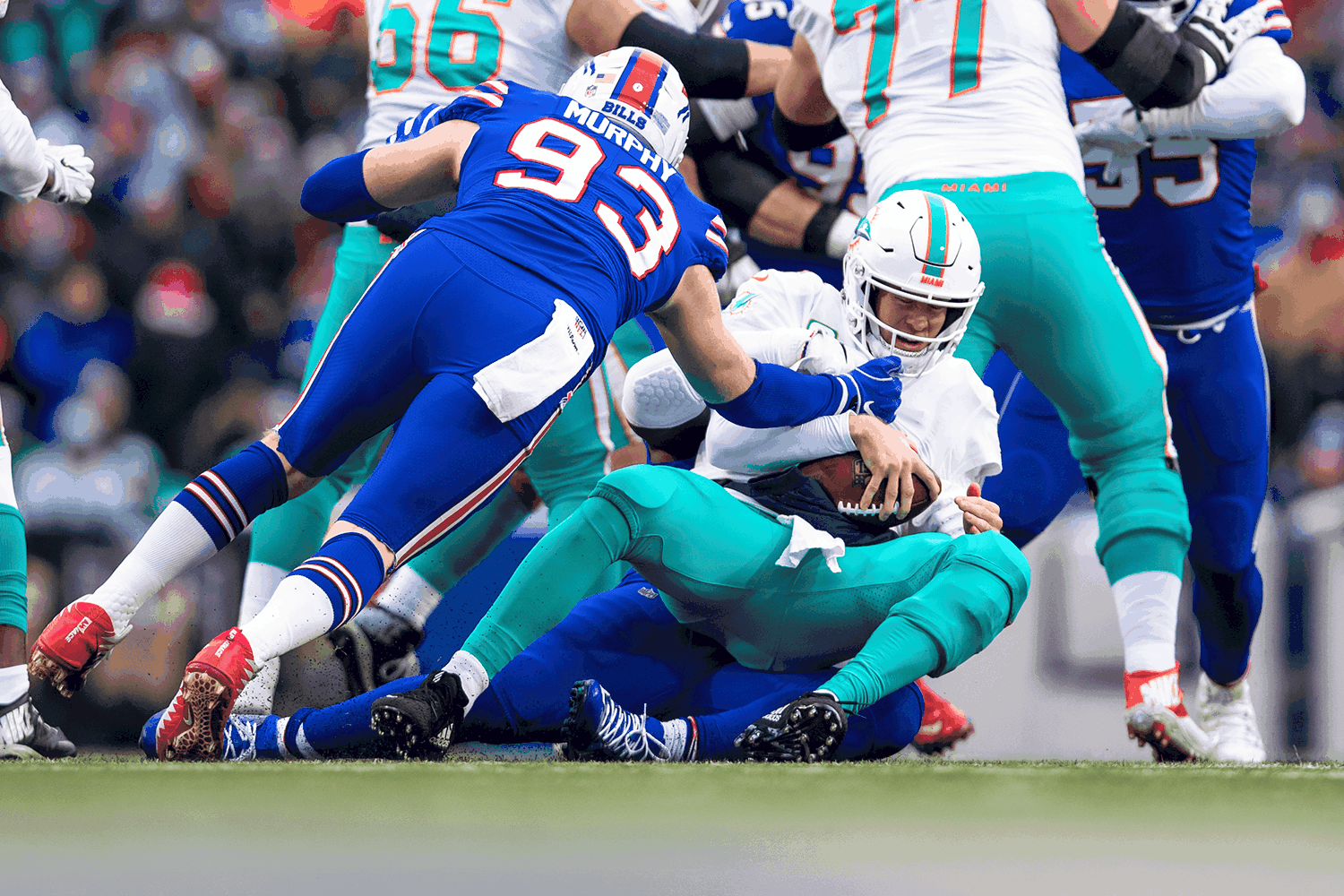Teams are not always what their record are, despite what Bill Parcells would have us believe.
The 2018 Dolphins were much worse than their 7-9 record. Miami may have finished in second place in the AFC East, but they were not the average 7-9 team.
When is a 7-9 team not a 7-9 team? When the team went 7-1 in one-score games and 0-8 in non-one score games.
There have been 21 teams since 1995 to post an equivalent win rate of 7-1 (87.5 percent) or better in one-score games. Studying these teams helps understand what was wrong with the Dolphins.
Every single one of those 21 teams went at least 10-6 on the season… except the 7-9 Dolphins.
All but two of those 21 teams won over 50 percent of their non-one score games. The few teams that did not each won at least one-third of their non-one-score games… except the Dolphins, who went 0-8 in their games non-one-score games.
What happened the following season to those 21 teams who were extremely good in one-score games?
On average, the following season these teams finished near .500 (83-77) in one-score games, so the likelihood of being great for multiple years in one-score games is highly unlikely. Unless, of course, you have Tom Brady or Peyton Manning. After a season in which Brady or Manning had a great mark in one-score games, they went a combined 38-14 (73 percent) in one-score games the following season. The rest of the teams went 45-63 (42 percent).
Digging in to analyze some of the metrics which further reinforce the Dolphins as a team far worse than their 7-9 record, last year’s Fins played the NFL’s fifth-softest schedule based on Early Down Success Rate, yet Miami ranked No. 25 in defensive efficiency and No. 29 in offensive efficiency. The Dolphins were No. 31 in both third-down and red-zone efficiency.
Zooming in to a game-by-game basis, despite playing an easy schedule, Miami posted a superior EDSR to its opponent in just two games all year: Week 1 against the Titans and Week 14 against the Patriots. Tennessee lost Marcus Mariota amid a rainstorm, before Week 14 was dubbed the “Miami Miracle” as the Dolphins won on one of the most improbable final play hook-and-ladder sequences in NFL history.
The Dolphins made 90 percent of their field goal attempts (No. 7 in the NFL), while opponents made only 75% of their field goal attempts, third worst. The team’s field goal edge contributed to +15% of Miami’s 2018 point differential.
Winning close games is more random than skillful, and when bad teams get extraordinarily lucky, a catastrophic season often follows.
The fact the Dolphins went 7-1 in one-score games but 0-8 in all other games is a major anomaly. Miami was a bad team in 2018, and they were wise to undertake a plan to aggressively rebuild. Watch for the Dolphins in one-score games in 2019. The odds that Miami will produce a losing record in these games is high. They are currently forecast to win five games and drop to last place in the AFC East. Without the ability to face rookie quarterbacks in the four games against the Jets and Bills, as they did last year (and won three of the four), it will be a challenge to exceed their forecasted win total in 2019.
















